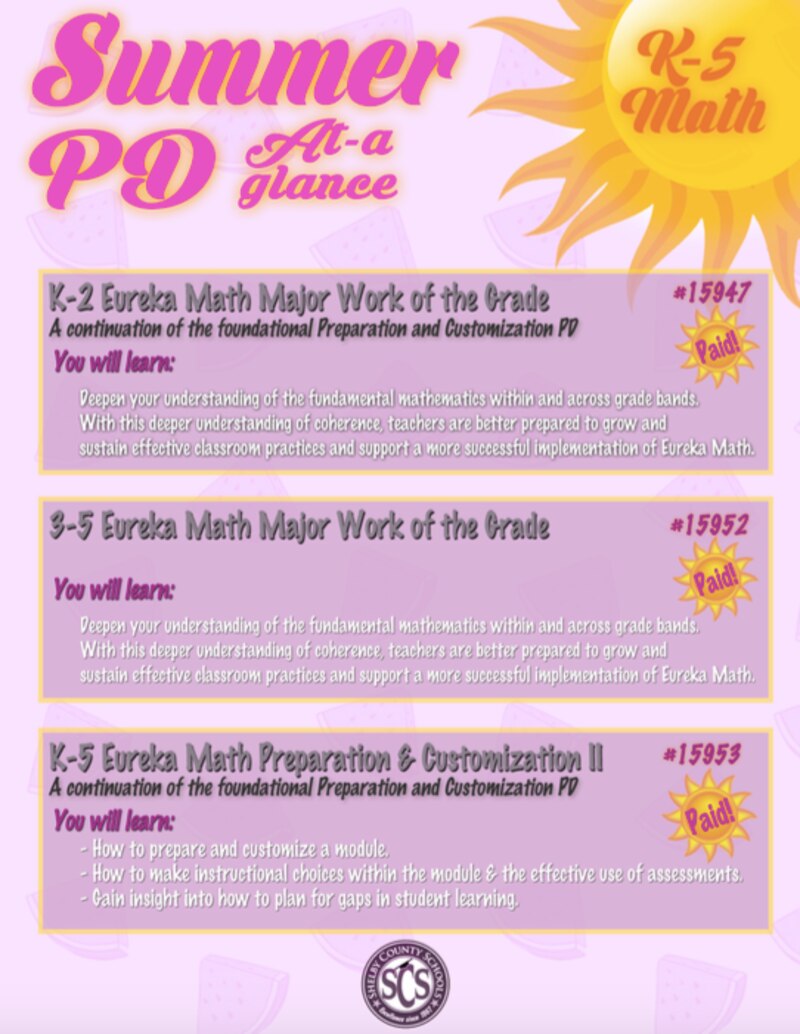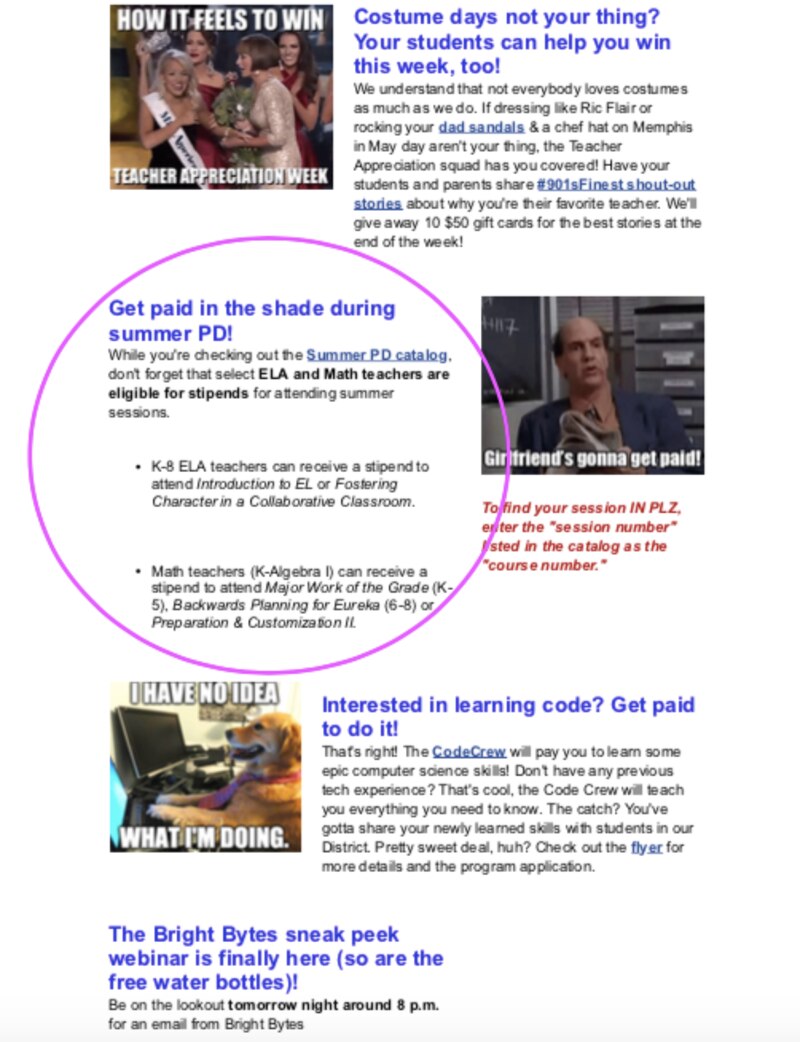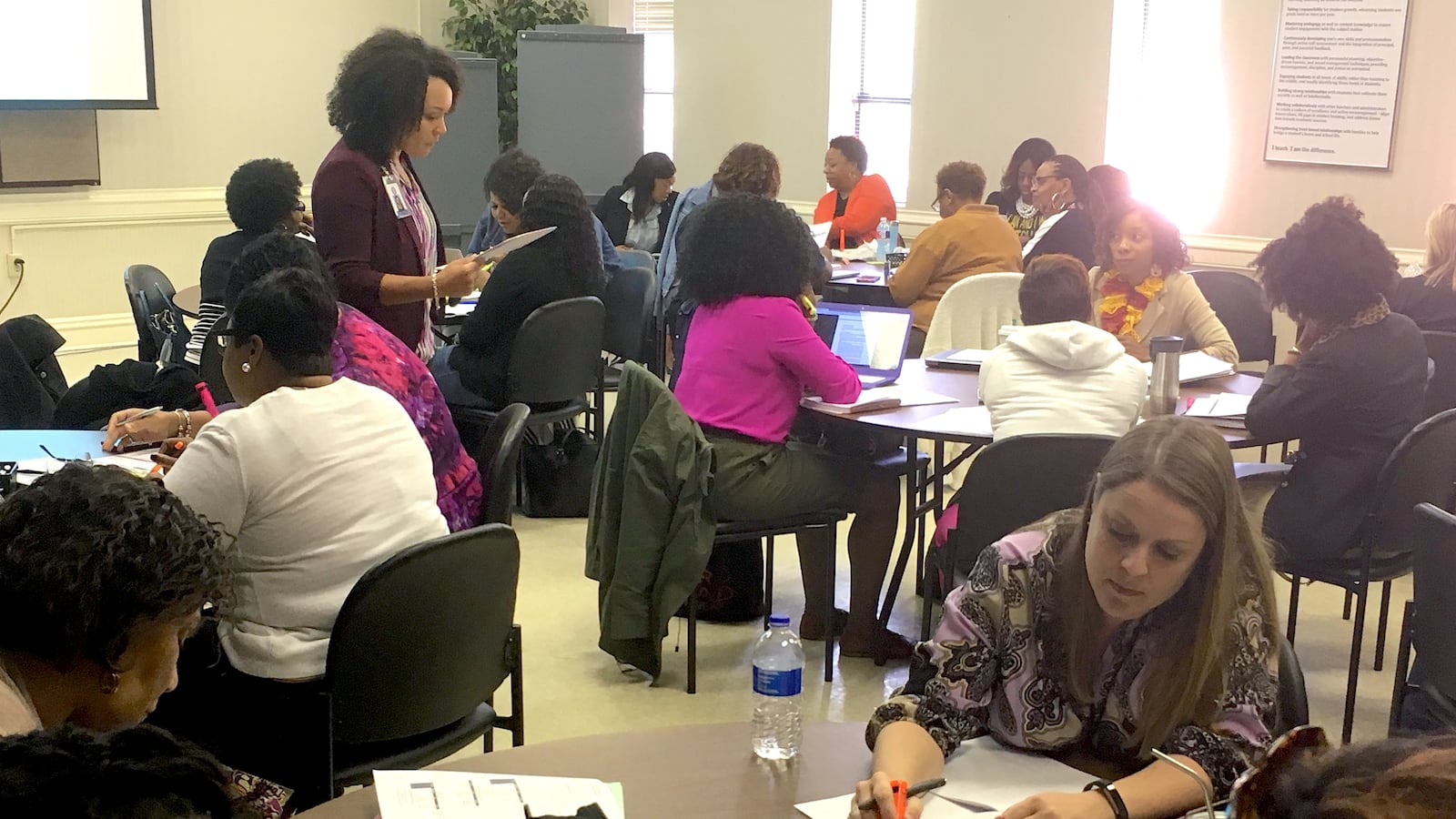Laura Ballard-Scott jumped at the opportunity to attend paid summer training to learn more about changes in math and English materials for her students with special needs.
But confusion over material Shelby County Schools leaders sent to teachers on how and for what teachers would be paid underscored educators’ simmering frustrations over compensation and use of their time — especially during the summer.
As a result, some teachers are choosing not to take training sessions they thought they would get paid for.
The stipends for the summer trainings are new and prominently displayed in flyers that were emailed to teachers throughout May. But the fact that teachers would only be compensated for one math or one English session were less obvious in an earlier, longer newsletter.
Ballard-Scott said she has done a lot of professional development for free.
“I gave up a whole month one summer because it would benefit my students,” she said. “It’s not like I need to get paid for everything I do.
“But after 13 years, I kind of get tired of them assuming that we should do those things for free because I don’t think in their jobs they would,” she said.


Tikeila Rucker, the president of United Education Association of Shelby County, which represents teachers, said the confusion is another reason to restrict trainings to the school year.
“Just like any field there is, you don’t make a doctor or lawyer attend training during their off days,” she said. “Some teachers work other jobs.” Summer is also when teachers plan for the upcoming year.
The summer training sessions were part of an effort to fulfill a promise Superintendent Dorsey Hopson made during a town hall in March to share more specifics on how highly ranked teachers will have more flexibility in how they teach the material. The rollouts for the two new curriculums were mangled by their mid-year starts, missing materials, and debates over their alignment to what Tennessee requires students to learn.
Angela Whitelaw, the district’s interim chief of schools, defended the district’s efforts to communicate the conditions for payment and pointed to the teacher newsletter sent May 9.
The goal, she said, was to balance desires for training and a true summer break. The four paid six-hour courses for Expeditionary Learning and Eureka Math are offered 34 times throughout the summer, compared to the 300 total sessions planned through July.
Teachers “wanted support in this area, and we also wanted them to enjoy their summer,” Whitelaw said.
Board member Billy Orgel said during a board work session last week that teachers shouldn’t be paid for only one course, especially because the district has pushed for teachers to become familiar with the new curriculums in a short timeframe.
“Why would we limit training if they’re willing to get better at something?” Orgel asked.
Hopson said he was willing to talk with the school board about more stipends for professional development, commonly referred to as PD. But he was hesitant to pay more for summer training. The amount, $250, was not publicly communicated until last week.
“For years people have taken it as part of the job,” he said. “There’s so much PD teachers have to undergo. If the practice is for teachers to always get paid for PD, that would be quite expensive.”
Rucker said she didn’t have a problem with the district’s stipulations for training, but based on the feedback she received from teachers and her meetings with district leaders, the plan was not clearly communicated.
“My understanding was if they attended a summer PD, they would receive a stipend when it comes to Eureka and EL,” she said.
For Ballard-Scott, if the district had more clearly explained the conditions for stipends, there wouldn’t be as much fuss from teachers.
“It’s not like teachers are never working on their craft unless someone is paying for it.
Just be honest with us up front,” she said. “I think that’s the biggest thing. People feel like they’ve been misled.”

